|

|
|
|
Review of Hewes Library
Database Subscriptions
By Johnathan
Skidmore

Oxford Reference Guide
http://www.oxfordreference.com/views/GLOBAL.html?authstatuscode=200
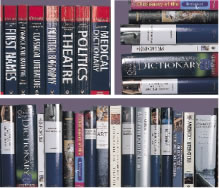
This is a
very well organized database from the Oxford University Press.
Much like the Oxford English Dictionary online, this
website is very easily navigated. On the main page, all of the
features are clearly printed and categorized for quick access.
This should earn big points with those who, like me, constantly
visit the same database repeatedly throughout the process of
researching one work. The main features of the Oxford
Reference Guide are an English dictionary and thesaurus, a
collection of quotations, bilingual dictionaries for five
different languages, and a search engine that browses over one
hundred of the reference books published by Oxford University
Press. Much like many of the more popular databases Monmouth
College subscribes to, such as JSTOR and EBSCOhost,
the Oxford Reference Guide allows the user to define the
subject of his or her query, making the search engine produce
narrow and precise results nearly every time. This database
covers a fairly broad area of study and the subjects covered
range greatly from English to the sciences and almost all
subjects in between. I deem this search engine to be an
excellent source for research that specially deals mainly with
language use, as well as some cursory research in the scientific
fields. It is definitely a database that deserves the Oxford
University Press’ name.
The Nineteenth Century in Print:
the Making of America in Books and Periodicals
http://memory.loc.gov/ammem/ndlpcoop/moahtml/ncphome.html

This
database is not as organized as the first but has a much deeper
cut of information. When compared to the number of books that
the Oxford Reference Guide searches, just a little over a
hundred, The Nineteenth Century in Print: the Making of
America in Books and Periodicals is the obvious winner for
the amount of information available. The website boasts that
there are over 1,500 books and 23 periodicals that are available
in this database managed by The Library of Congress. The search
engine is a click off the main page and lacks a feature to limit
the resources that are searched, but this is a much larger
database, which makes up for this lack of precision. This
database would best serve someone looking for information on a
less specific topic only within the nineteenth century.
Overall, I feel that this is a satisfactory database to use,
especially if you are dealing with a broad event from the
nineteenth century. If I were to point out one fault, it would
be the fact that The Nineteenth Century in Print: the Making
of America in Books and Periodicals lacks the ability to
limit your searches. Due to the magnitude of the database,
search results can sometimes be far too long to sort through.
|
|
English Courses
Offered for the Spring 2005 Semester
By Jamie Jasmer

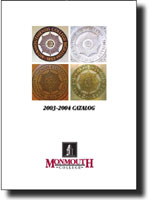 |
|
English 200: Introduction to English Studies
This course is a gateway to the English major. It is designed to
introduce majors and minors to the broad range of scholarship and
practice within the discipline of English. Included will be emphasis
upon close reading and research skills, as well as overviews of the
history of the discipline, creative writing, literary criticism and
theory, and vocational paths. This course is being taught by
Rob Hale.
|
|
English 201: Grammar
This course deals with basic
concepts in grammar (parts of speech, etc.), then moves into more
advanced details of diagramming sentences and looking at the origin
of grammar study. We will also try to work in some methods for
teaching grammar. This course is being
taught by Kevin Roberts.
|
|
English 210: Creative Writing
Practice in the writing and
critical analysis of imaginative literary forms, especially
poetry and fiction. Mary Bruce will be instructing this
class.
|
|
English 221: British Survey II
This course will emphasize major
literary movements and historical developments in English literature
from the Romantic period through the Modern period.
This course is
being taught by Rob Hale.
|
|
English
225: American Survey II
This course is an introductory
survey focusing on poetry and fiction written after the Civil War
and before American involvement in the Second World War. Included
are works from such writers as Jewett, Wharton, Twain, James, Kate Chopin, Crane, Pound, Robinson, Frost, Anderson, Stevens, Eliot,
Fitzgerald, Hemingway, and Faulkner. There will be an emphasis on
literary, cultural, and historical movements. The course is a
continuation of English 224, but may be taken alone and without
regard to sequence. Course instructor will be Mary Bruce.
|
|
English
301: Advanced Composition
This course is an opportunity
for students to examine and practice literary non-fiction. By
attending carefully to the literary devices employed by authors when
they write "true" stories, students gain not only an appreciation
for the craft of one of the most broadly-practiced contemporary art
forms, but also give themselves a store of techniques which they can
apply to their own memoirs, autobiographical essays, historical
pieces, and interviews. The course examines both types and
techniques of literary non-fiction even as it asks students to write
examples of the genre. Available to junior and senior majors and by
consent of the instructor (Mark Willhardt).
|
|
English 310: Advanced Creative Writing
This course
parallels the creative writing course (English 210) however, the
standard is higher. Students are to produce publishable work and
submit it. Also the writing demands are greater. Students must write
fourteen poems or eighty pages of prose and submit weekly market
reports. This course is being taught by Mary Bruce.
|
|
English 350
Section 1:
Literary Representations of Hell
“The mind is its own place, and
in itself/ Can make a heaven of hell, a hell of heaven” (Milton
Paradise Lost I.253). Ah, the intellectual pleasures of hell!
Come make “a heaven of hell.” Dante’s The Inferno and
Milton’s Paradise Lost will be the cornerstones of this
course with other possible works including classical and religious
(western and non-western) texts with images of hell (think Orpheus),
Marlowe’s Dr. Faustus, Geothe's Faust, Blake’s Marriage of
Heaven and Hell, and Sartre’s No Exit. Emphasis will be
on the cultural and political echoes in these works as well as the
literary and religious.
This course is
being taught by Marlo Belschner.
Section 2: Transatlantic Lit of
the 1890’s
This course will
examine and compare literature of England and America written during
the last decade of the nineteenth century. Authors may include
Wilde, Doyle, Hardy, Norris, Jewett, Kipling, Bierce, Field, Symons,
Johnson, Stoker (among others). We will explore the literature in
terms of several artistic movements including aestheticism,
decadence, naturalism, and regionalism.
This course is
being taught by Rob Hale.
Section 3: Modernist Poetry
As a
literary period, Modernism marked a radical break with the Victorian
style and mores which preceded it. In this course we will be
concentrating on one of the two literary genres which brought
Modernism both fame and ridicule in the early part of the
twentieth-century, poetry. (The other dominant Modernist literary
genre was fiction.) We will examine works from both sides of the
Atlantic in order to get a sense of what American and European
Modernisms might have shared and what might have made them
distinct. We will examine poetry by Eliot, Pound, Hughes, HD,
MacDiarmid, and WC Williams, amongst others.
This course is being taught by
Mark Willhardt.
|
|
English 400: Senior Seminar
An intensive study of key
literary periods and subjects. Recent seminars have focused upon
the folowing:
“Literature of the American South,” “New England Women Writers of
the Late 19th Century,” “The Gothic Tradition,” “The American
Expatriate Experience in Literature” and “Arthurian Literature.”
Required of all senior English majors. This year's theme is
still TBA.
This course is
being taught by Craig Watson.
|
|
|

|
Information about
Registration
-
Students who were enrolled at
Monmouth College last year and those who have returned to
Monmouth College after a semester or more hiatus will be able to
access the registration system beginning at
6 p.m. Wednesday, Nov. 3,
to make necessary changes to their spring schedules.
-
Course selection for first
semester students will begin on
Monday, November 8, at 5 p.m.
New students will be divided into
four groups with staggered start
times (5:00, 6:30, 8:00, and 9:30 p.m.) for
registration. (See the Registrar’s page for details:
http://reg.monm.edu:9040/cgi-bin/student/frame.cgi )
|

|
What is
your favorite season of the year and why??
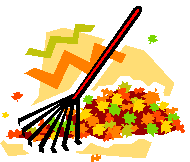 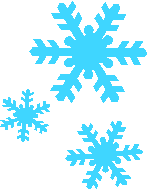
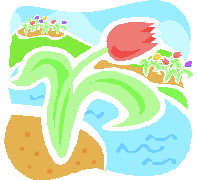
 |
|
|
I
love summer because it is when my birthday and the Fourth of
July occur. It is hot and baseball is on TV.
~Chelsea Brandt
My favorite
season of the year is spring because the warmer
weather and new plant growth are a welcome respite
from the cold, dreary winter.
~Michelle
Anstett
I would have
to say fall because my birthday happens during that
season, as well as Halloween (it's just an excuse to
pig out on candy and watch scary movies...a holiday
for the truly lazy).
~Brandon
Athey
My favorite
season is spring. The weather is cool; not too hot,
not too cold. Plus you know summer is right around
the corner.
~Jarred Mauck
My
favorite season of the year is whatever
season is coming next.
~Talitha Nelson
My
favorite season of the year is autumn. Not
only do the colors on the trees go vibrant,
but they express the change of the seasons,
the changes of life. The bright colors of
oranges, reds, and yellows scream out for
attention. The colors allow the imagination
to run wild with the excitement of a new
season. Fall offers all that and a bright
new box of crayons and a new coloring book
to share with my little brother.
~Alexis
Graves
My
favorite season would have to be summer
since summer means no school obviously,
summer jobs (Hey! A guy's got to make a
living.) and of course, my birthday.
~Scott Hagen
Spring, Everything that once was
dead rises anew and new things are
born. It is the season of birth in
most poetry and it is also just great
weather.
~Chadd Kaiser
My favorite season would be winter.
I love the idea of bundling up in
the cold and just enjoying the
snow. My family can even make ice
cream out of snow! With snow,
there's always something to do
outside: build a fort, make snow
man, make snow angels, have a
snowball fight. The opportunities
are endless. I think that's the
best part of winter and in winter,
you can see everything shut down in
nature and prepare for revitalization in the spring. It's
almost as if winter is nature's annual
nap!
~Kimberly
Gratzke
I love autumn because you can still
wear sweatshirts to class and not
have to lug around bulky winter
coats. Plus, the colors of the trees
are gorgeous, and you can drink all
the hot apple cider you want
~Elizabeth Brennan
Winter
is the best season because it is really
really cold… and it snows.
~Kat
Neilson
I love
spring because it is when the world is
“puddle-wonderful” to quote ee cummings. (Poem
is below)
~Kelly
Winfrey
spring when the world is mud-
luscious the little lame baloonman
when the world is puddle-wonderful
and bettyandisbel come dancing
from hop-scotch and jump-rope and
wee
~ e.e. cummings
|
|
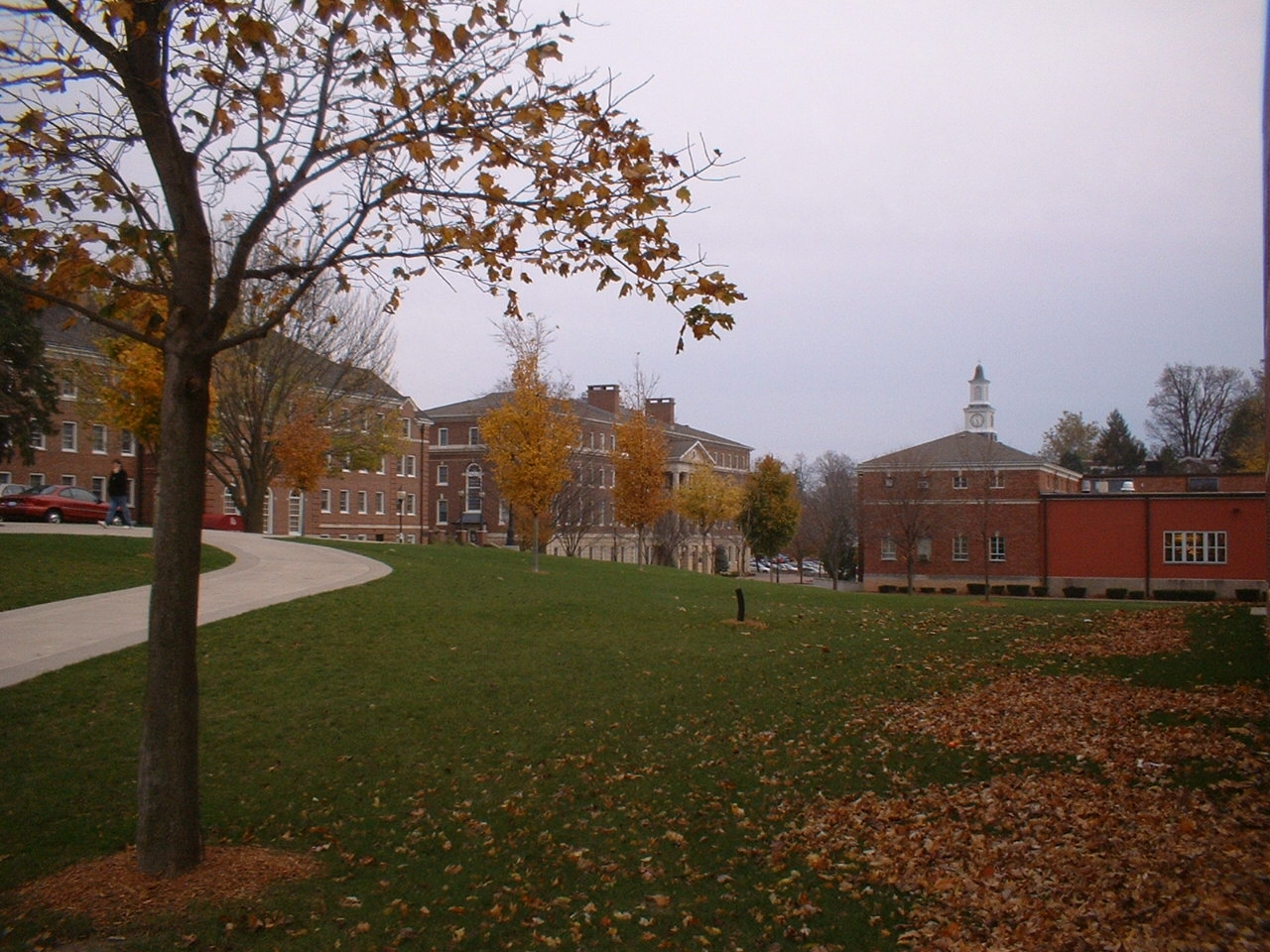
Monmouth College campus in the fall! |

|
|
|
Writing Labs |
Monday - Thursday 3:00-5:00 pm |
| |
Sunday - Thursday 7:00-10:00 pm |
| |
|
|
Math |
Monday - Thursday
3:00 - 5:00 pm |
| |
Sunday and Monday
7:00 - 9:00 pm |
| |
Wednesday and Thursday
7:00 - 9:00 pm |
| |
|
|
Spanish |
Monday and Tuesday
2:00 - 3:00 pm |
| |
Wednesday and Thursday
7:00 - 8:00 pm |
| |
|
|
French |
Wednesday and Thursday
7:00 - 9:00 pm |
| |
|
|
German |
Monday and Wednesday
8:00 - 9:00 pm |
| |
|
|
Communication |
By appointment Only
(3rd Floor of Wallace Hall) |
|

|











